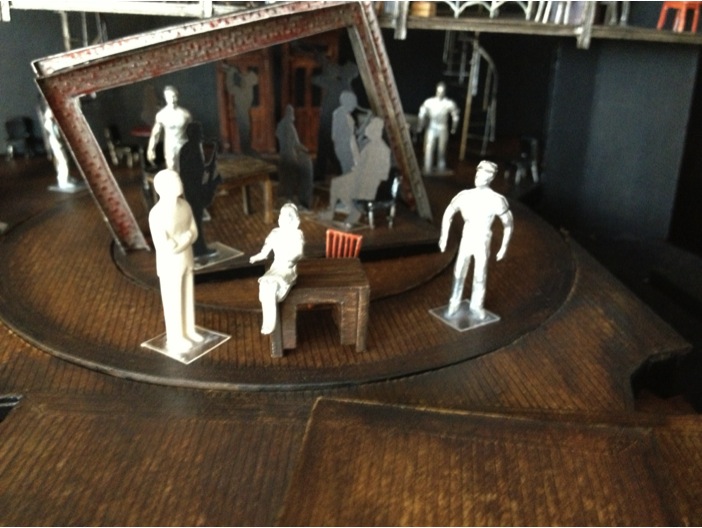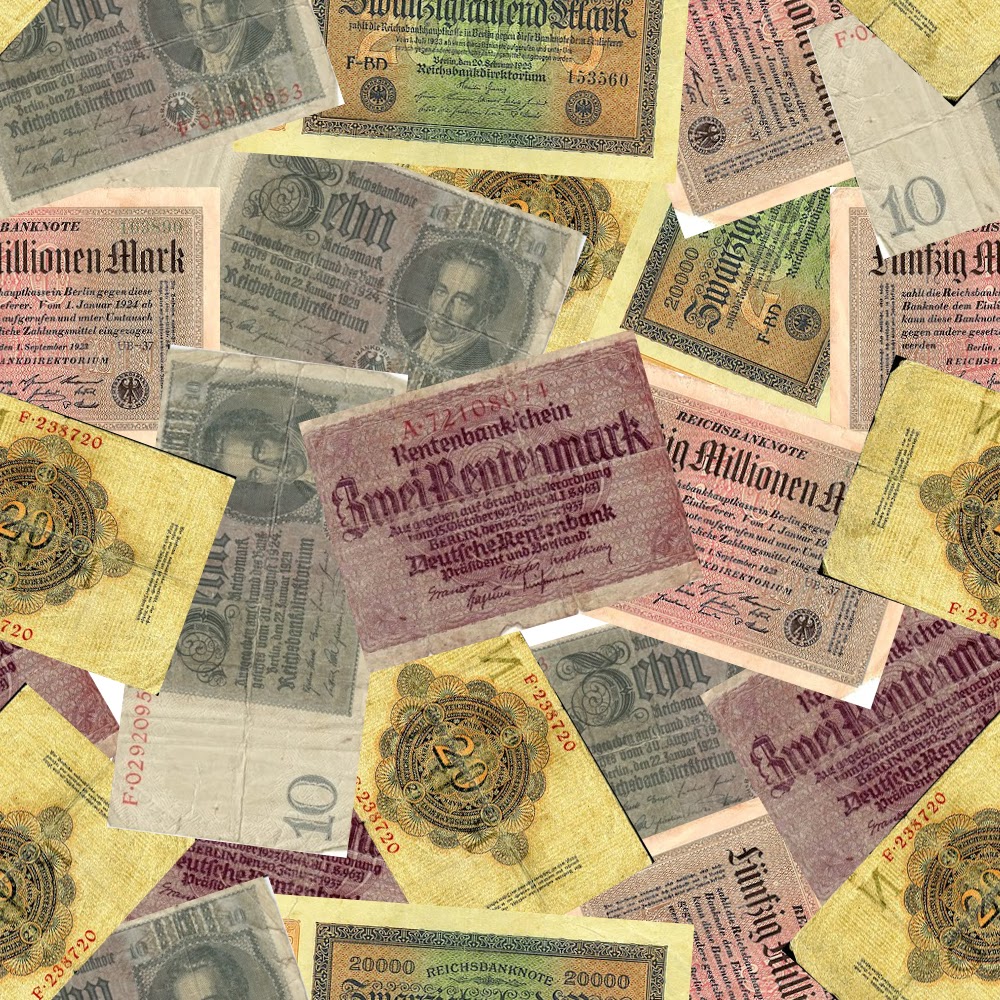One of the first
Cabaret
projects we began working on in the costume shop was figuring out how to create
some of the fabrics themselves. Our costume designer,
Jen Caprio, created some
costume renderings which depicted several highly specific fabrics with prints
we knew we would not be able to purchase.
For the “Money” number, the Kit Kat Girls and the Emcee have
costumes made from matching fabrics, covered with images of the vastly devalued
Deutschmarks. Paper money had become so worthless at the time, that there were
bills in circulation at denominations like the 20,000DM note and the
5,000,000DM note. Jen provided us with
an array of images of this money, and we set to work.
Crafts Artisan Candy McClernan is heading up the surface
design effects on this show, and she created a digital textile print design of
a seamless repeat using the scattered Deutschmarks. Her print art looks like
this:
Then we used local custom fabric printers Spoonflower to
order yardage of the fabric for the costumes—silk for the women’s skirts and
sturdy cotton twill for the Emcee’s jodhpurs. You can see the fabric online at
Spoonflower
here.
For one of Sally’s dresses, Jen found a wonderful research
image of a woman wearing a dress made in a fabric printed with giant zeppelins.
Candy used a combination of digital manipulation and drawing by hand to create
a printable version of the zeppelin artwork, and again we used Spoonflower’s
digital fabric printing technology to make the
fabric for this outstanding
dress.
Of course, we began all of this several weeks before the
actors arrived since in order to digitally print fabric you have to allow extra
time for the production of it, unlike fabric you can impulse-buy from a store
like Mulberry Silks. The fabrics arrived the day after the actors did, so our
drapers in the costume shop would have everything they needed to begin work on
the patterning and sewing of the costumes!






